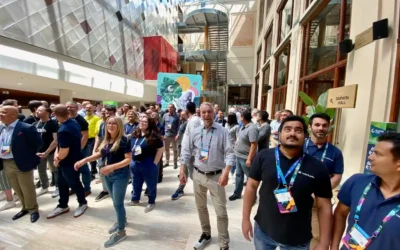From June 28, 2025, the new Accessibility Improvement Act (BFSG) will oblige providers of numerous digital products and services to comply with specific accessibility standards. The aim is to enable people with disabilities to participate equally in the digital society. What was previously considered a “nice to have” is now becoming mandatory.
But how can companies ensure that their digital solutions not only meet the legal requirements, but are actually accessible - from the perspective of those who are affected? The answer lies in practical testing by real users: Crowdtesting with people with disabilities.
The Legal Background: What are companies facing?
With the BFSG, Germany is implementing EU Directive 2019/882 (European Accessibility Act). Numerous digital products and services are affected, including
- websites and mobile applications
- e-commerce platforms
- banking services and booking systems
- self-service terminals (e.g. cash or ticket machines)
- e-readers, smart devices and communication hardware
Companies must ensure that these services can be used by people with a wide range of disabilities without assistance. The technical requirements are based on the European standard EN 301 549, which in turn is based on the internationally recognized WCAG 2.1 (Level AA). But accessibility does not end with theory. After all, technical conformity does not automatically mean that a product is actually usable in everyday life.
The Practice Gap: When Conformity does not equal User-friendliness
An online store formally meets all WCAG criteria - and yet a blind user fails to order a product. A voice assistant is implemented in line with standards - but a user with motor impairments cannot operate it properly. Such scenarios show: It is not enough to prove accessibility on paper. It has to be tested in the real context of use. This is precisely where one of the biggest challenges for companies lies: making the leap from legal conformity to genuine inclusion.
The Solution: Crowdtesting with People with Disabilities
msg.passbrains offers companies a decisive advantage on the way to true digital accessibility: Crowdtesting with a diverse community of people with physical, sensory or cognitive disabilities.
Why crowdtesting is the game changer:
- Real Users, Real Devices, Real Environments
Instead of simulating accessibility in the laboratory, it is tested in everyday life - on different devices, with different assistance technologies (e.g. screen readers, Braille displays, voice control). - Diversity of Perspectives
Accessibility is not “one-size-fits-all”. Our crowd includes testers with visual, hearing, mobility or cognitive impairments - and therefore brings a wide range of experiences to the evaluation. - Fast, Scalable and Cost-Efficient Implementation
Crowd tests can be set up quickly, carried out locally or internationally and provide qualitative and quantitative data. - Concrete Optimization Proposals
The test results not only provide error reports, but also context-related suggestions for improvement - directly from the user experience.
Accessibility as a Competitive Advantage - Not Just a Duty
The implementation of digital accessibility is not only a legal necessity, but also a business opportunity. It opens up access to a previously often neglected target group: over 87 million people in the EU live with some form of disability - and have considerable purchasing power.
Companies that act now not only ensure legal compliance, but also:
- higher customer satisfaction
- stronger trust in the brand
- an improved user experience for all (because accessible design is often also more user-friendly for non-disabled users)
Conclusion: Rethinking Accessibility Testing
Accessibility is not something that can be “handed in later”. It has to be considered, designed and tested from the outset - with the people who depend on it. msg.passbrains offers an effective and practical solution for companies that take accessibility seriously with its specialized crowdtesting model.
Are your digital products ready for 2025 - and for all users?
Let's find out together.
Find out more about accessibility crowdtesting with msg.passbrains now
























